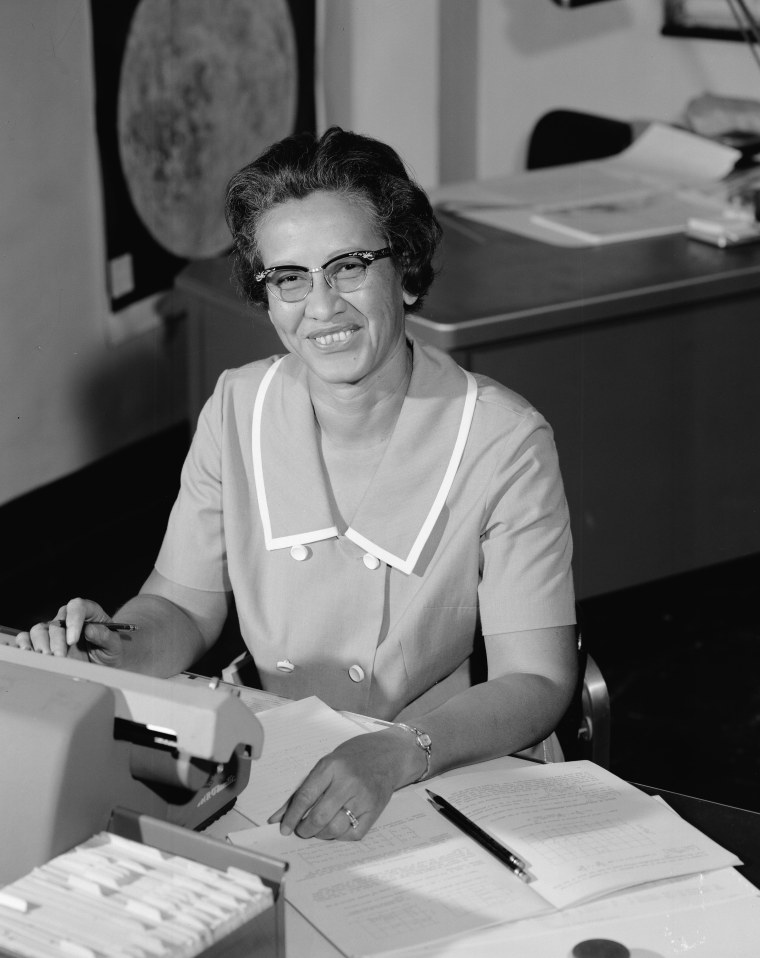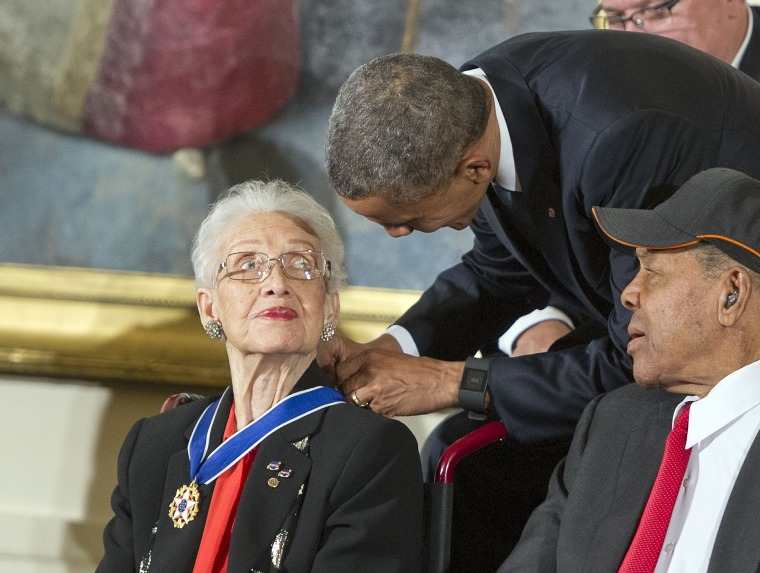John Glenn gained his place in American lore when in 1962 he came the first American to orbit the Earth. That mission, however, never would have happened without Katherine Johnson.
Johnson, one of NASA's first black female employees, was one of the mathematicians who verified the computer's calculations that ensured Glenn's orbit was even possible. Upon Glenn's request, she was the only black woman in the control room during his launch.

In 1960s Jim Crow America, Johnson and her two African-American female colleagues, Dorothy Vaughan and Mary Jackson, were called the "colored computers." Their remarkable story will be told in the upcoming film 'Hidden Figures' set to be released on Christmas Day.
"I read the script and I just remember initially being angry," actress Taraji Henson, who plays Johnson in the film, told NBC News. "Here we have these women who changed the course of America, the history of this nation and we don't know about them."
Johnson, now 98, is the last living member of the unsung trio who forever changed the trajectory of American space exploration. Growing up in West Virginia, she said numbers were always on her mind.
"I counted everything," Johnson told NBC News. "I'd count plates when I washed dishes. I counted steps from church."
Johnson graduated college at just 18 years old and went into teaching, the only field open to hiring black women at the time. Johnson still had a dream: to work at NASA. In 1953, at the age of 35, she was hired as one of the agency's first black female recruits.

"When she walked into the control center, she was the only black," Charles Bolden, current NASA administrator, told NBC News. "They thought she was the maid."
Bolden, who himself is NASA's first black administrator, called Johnson a role model. In November 2015, President Obama awarded Johnson the Presidential Medal of Freedom, the nation's highest civilian award, for her contributions to the advancement of the country's space program.
A trailblazer for women of color in the field, Johnson's story will soon no longer be hidden from history.
